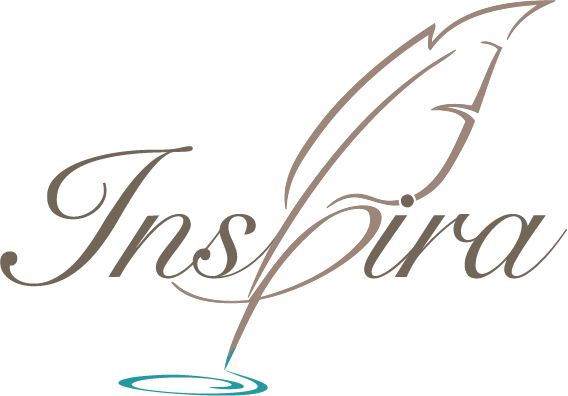Should You Start Your Own Podcast?
/No doubt as a published author, you’ve been told to “get on podcasts” to get the word out about your book. That’s great advice, but what might be even better? Starting your own podcast!
It’s true that one of the most powerful and effective ways for authors to connect with their readers, boost book sales, and promote speaking opportunities is by starting their own podcast. A podcast provides a direct platform for you to reach your target audience and share stories, insights, and expertise while building a loyal community around your brand.
Here are several reasons why starting a podcast is a great idea for any author looking to promote their book and expand their speaking career:
A Direct Line to Your Audience
Podcasts allow authors to engage with their audience in a way that is personal and authentic. Unlike traditional written content, podcasts let listeners hear your voice, your tone, and your passion—creating a deeper connection. By regularly releasing episodes, authors can keep their followers engaged, share updates on their book, and offer insights into their writing process.Position Yourself as an Expert
A podcast gives authors the opportunity to position themselves as thought leaders and experts in their field. Whether your book is a non-fiction, a how-to guide, or a novel, there is a way to weave relevant themes and discussions into your podcast. Sharing behind-the-scenes details of your writing journey, discussing trends in your genre, or interviewing other industry professionals can help establish you as a credible voice. This type of exposure can open doors for speaking engagements and media appearances, as people begin to view you as an expert in your field.Amplify Your Book’s Message
One of the most effective ways to promote your book is through organic conversation. A podcast allows you to talk about your book in a relaxed, informal way, rather than relying solely on traditional promotional methods. You can delve into themes, characters, or plot points that didn’t make it into your book, giving listeners additional value. You might also share personal stories and experiences that inspired the book, helping to humanize the process and build a stronger emotional connection with your audience.Build Relationships with Other Authors and Influencers
Podcasts offer a fantastic opportunity for networking. By inviting other authors, influencers, and industry professionals as guests, you can establish mutually beneficial relationships. Not only do you have the opportunity to learn from their experiences, but you also gain exposure to their audiences, increasing the chances of expanding your own following. Guest appearances on other podcasts can further boost your visibility and open up new opportunities for collaboration, joint promotions, or speaking engagements.Create a Platform for Speaking Opportunities
For authors interested in pursuing speaking opportunities, a podcast is an excellent tool to establish credibility and attract event organizers. A well-crafted podcast demonstrates your ability to speak clearly and engage with an audience, both essential qualities for a successful speaker. By sharing your expertise on specific topics related to your book, you position yourself as an ideal candidate for speaking gigs at conferences, workshops, or webinars.
Getting Started
Starting your own podcast requires a mix of planning, equipment, and software. Here’s a step-by-step guide to help you begin:
Come up with a plan.
Niche and topic: Define your podcast’s theme, audience, and unique angle.
Podcast name and branding: Pick a catchy, memorable name and design a logo.
Format and structure: Decide on episode length, solo vs. co-host, interview-based or storytelling.Choose your equipment and software.
Microphone: A good-quality USB
Headphones: Closed-back headphones for monitoring
Audio Interface (if using XLR mic), pop filter, boom arm: To improve audio quality and reduce plosives
Recording Software: Free: Audacity, GarageBand (Mac); Paid: Adobe Audition, Logic Pro X
Remote Recording (for interviews): Riverside.fm, Zencastr, or Squadcast.Start recording and editing. First, find a quiet spot where you can reduce background noise for clean audio. Ensure you have a proper mic technique and levels that work for the sound you desire. Practice a few times (or a lot), cutting out mistakes, adding music, and leveling the audio using the software you’ve chosen.
Find a podcast hosting platform, such as Anchor, Buzzsprout, Podbean, or Libsyn. After that, you can submit your podcast to directories, such as Apple Podcasts, Spotify, Google Podcasts, and more.
Promote, promote, promote! Like you do for your book, you’ll use your social media channels, your website, your business cards and email signatures, word of mouth, and more.
I remember when, years ago, “blogging” became popular and seemingly everyone had one. Over time, the blogging trend faded somewhat (although they are still valuable; don’t give them up entirely) and podcasting took off. Today, many people prefer to listen to podcasts over music in the background while they work at home or in the yard, drive their cars, or take the dog for a walk. These are all wonderful opportunities for you, the author, to engage their attention and help them interact with your content and mission. It just takes a little investment of time, skill, equipment, and learning how.
If you give it a try, let us know so we can follow along and promote your work. We’re always here to support our authors!



